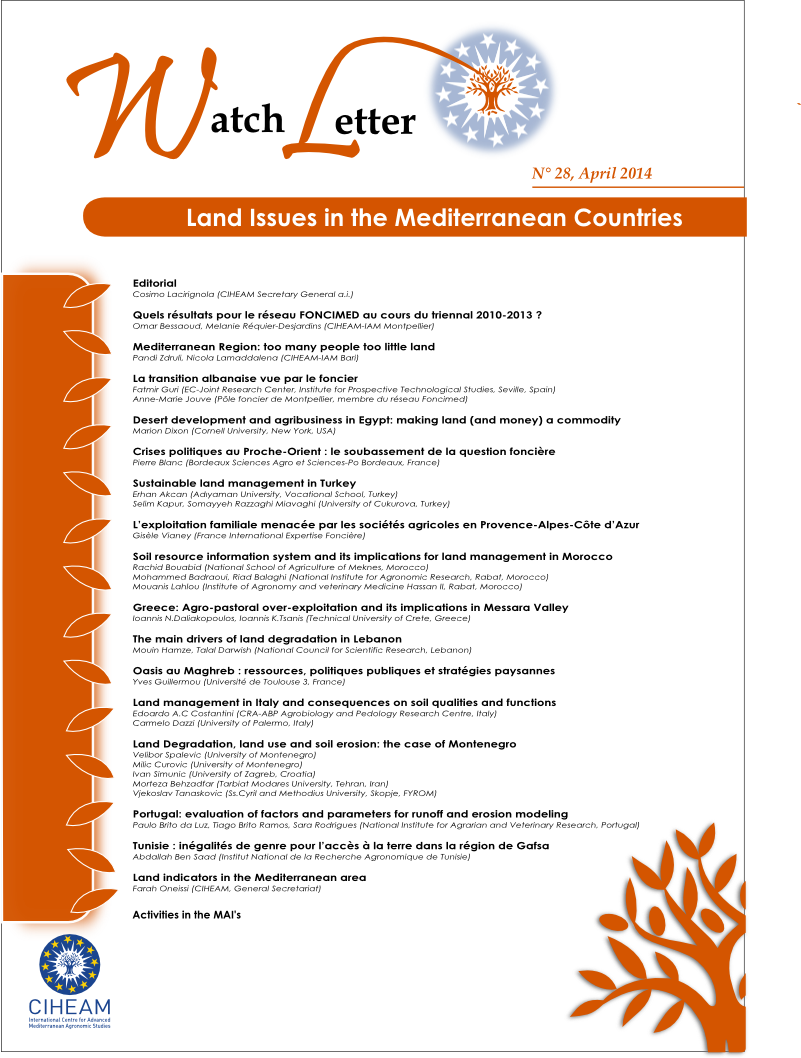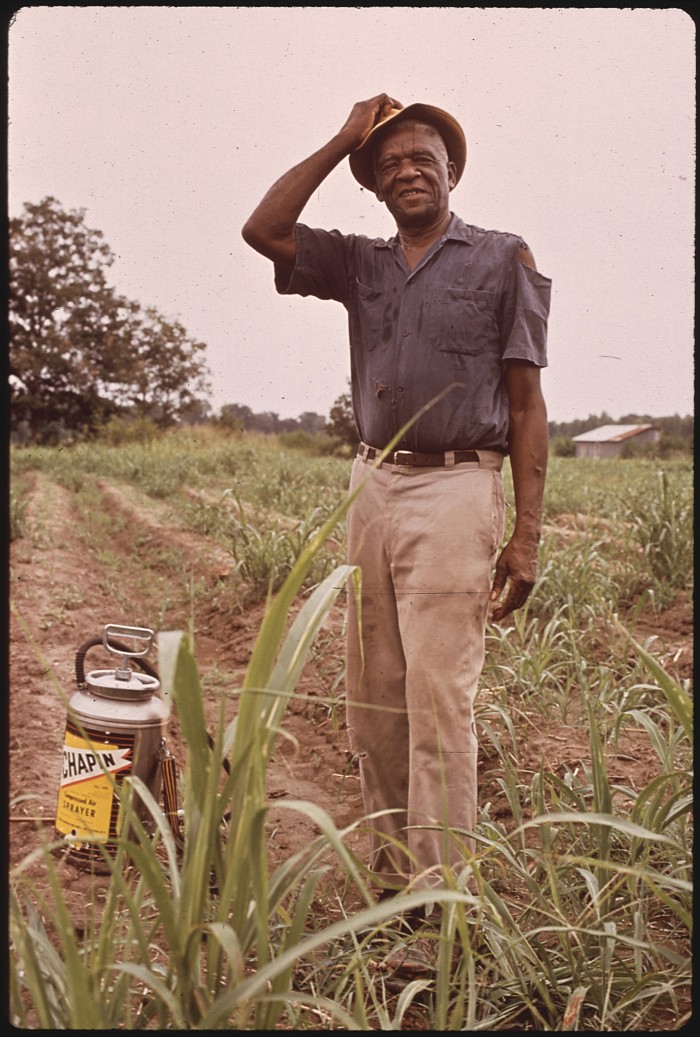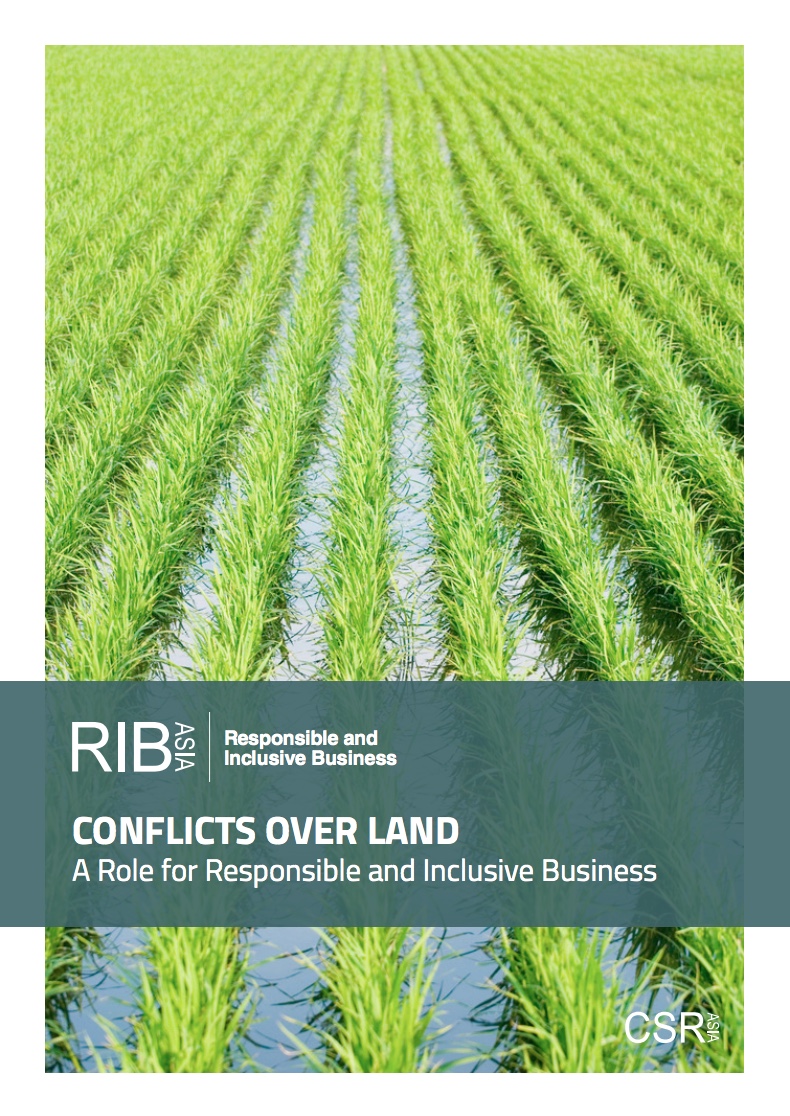Watch Letter Land Issues in the Mediterranean Countries - CIHEAM
CIHEAM - Watch Letter N.28 released: "Land Issues in the Mediterranean Countries"
Since 2007 CIHEAM is publishing a quarterly Watch Letter devoted to Major Issues in Mediterranean Agriculture, Food and Rural Areas. Each Issue contains a series of articles on a specific topic, together with information on CIHEAM current activities.
- - -







